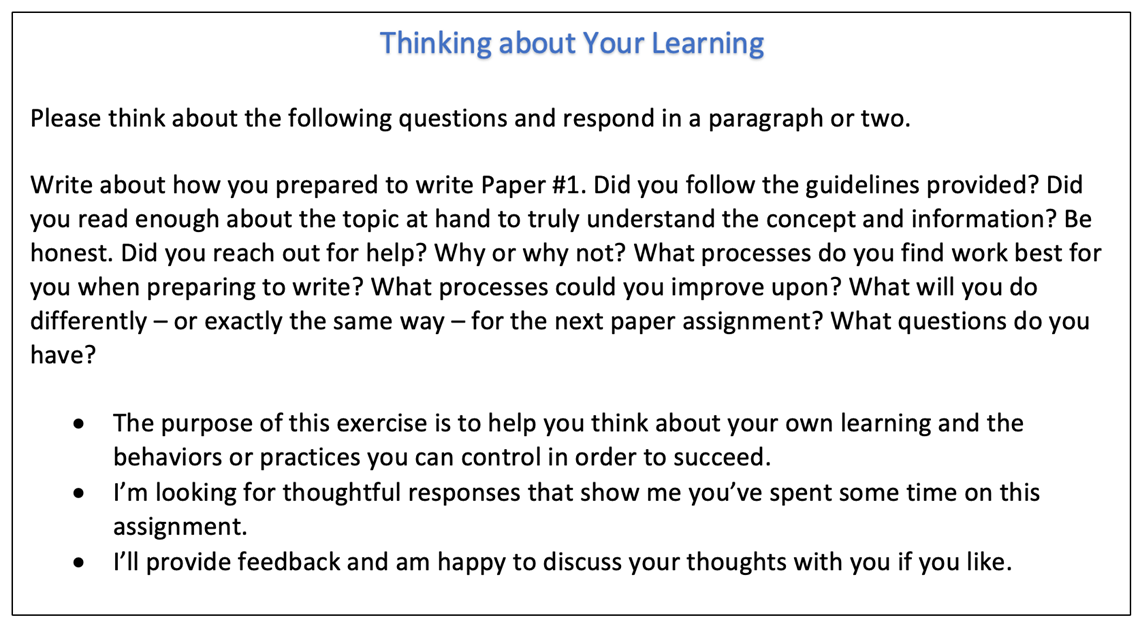
Credit: © Penn State is licensed under CC BY-NC-SA 4.0
Also known as reflective writing, journaling can serve as a valuable metacognitive practice to help students think about their own learning. Journaling reflectively as a metacognitive activity is a form of monitoring, where students write to focus attention on their experiences with class activities or assessments. This type of journaling can be a regularly occurring assignment or used as an infrequent check-in during the semester. The point is to give students opportunities to think about their own learning, to consider the feedback they’ve acquired, and to plan for how to modify their learning behaviors for success. Additionally, metacognitive writing can simply provide students with space to think about the ways their thinking has evolved with exposure to course material or to write about how they will approach future activities and experiences. Instructor feedback, and/or a follow-up discussion with students can enhance the metacognitive process and help students gain control of their learning. The following prompts offer some ideas:
- What study strategies did I implement and how effective were they? Is there anything I could change? Where might I find help with this?
- How did my strengths help me complete this exercise? What did I do that worked particularly well?
- For answers that I got wrong, did I make simple mistakes, or do I not really understand the concept? What can I do to work on concepts I’m unclear about?
- What did I bring to the group assignment? What did I learn from others in my group? How can I use this information to improve the work I do with groups in the future?
- How has my thinking about [a subject] changed after the assigned reading? Or how hasn’t it changed?
- Consider the instructions for the [x] assignment. Be honest about how you met them or didn’t meet them, and write about the things you did well and the mistakes you made. How will this help you tackle the next assignment?
- Use the feedback you received on the assessment to determine you highest priorities for studying for the next assessment. Discuss some strategies that you’ll try next time.
Considerations
- Clearly articulate the goals and parameters of the reflective writing process/assignment.
- Offer participation grades for metacognitive assignments.